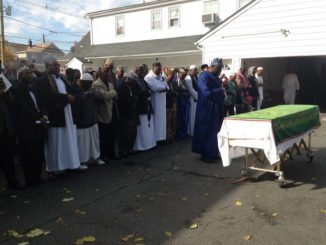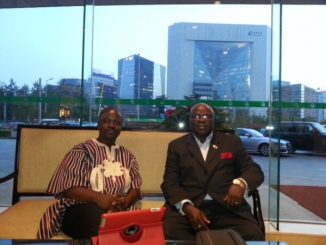
Rising Inflation Poses Threat To Cost of Living in Sierra Leone
Marcus Bangura

By and large, Inflation has been defined as an increase in the general level of prices or the cost of living. In Economics, it is the decline of the value of money, and an increase in the quantity of money, leading to a devaluation of the existing money. In the case of Sierra Leone, with inflation at over 44%, the cost of living has increased exponentially, with many families unable to make ends meet, especially as salaries remain the same. This has contributed to the hardship that is biting the nation.
Among one of the main factors responsible for the increase in the prices of commodities is the cost of fuel. Fuel has often been said to be a political commodity, and any government that is unable to control the price of this commodity, will find itself in a big mess. Complying with IMF conditionality has been the demise of most African governments. Among the demands of the IMF is removal of subsidies on fuel and food stuffs like rice. These commodities are the backbone to the country’s economy, and being able to tackle them with prudence will ensure that a government stays afloat.
Unfortunately, our leaders are so determined to please the international financial body that they often do not see the effect that such actions have on the country. While governments need the funds from the IMF, they should remember that the livelihood of their citizens is paramount, and should take precedence over any development agenda. Most of the funding from the IMF is used to carry out development projects, but at what cost?
When subsidies are removed from fuel, it affects every sector in the country. Transportation costs become high, which results in a substantial increase in the cost of goods. Thus, the cost of a plate of food from the local cookery seller increases, due to the cost of food stuffs in the market. This eventually affects the ordinary man, who lives from hand to mouth. It is therefore important that when our leaders decide to take some decisions that will adversely affect our lives, they should think of the ordinary man who depends on daily wage or hand to mouth.
Some Economists say that inflation is good for business, as the businessman passes the cost of his goods to the consumer, but this also has an adverse effect on their business, as their goods will take longer to be sold, which will affect revenue generation of the government. Some businesses will; fold up when they can no longer cope with the high cost of importation and taxes. To make matters worse, the fact that the dollar rate keeps rising, it poses serious concern in getting it to import goods.
With inflation affecting the cost of goods, the value of the currency depreciates. This situation poses a serious problem for countries that do not have goods they export, or where what is exported does not bring in the required amount of foreign exchange. As in the case of Sierra Leone, we import virtually everything, and our export of minerals does not augment the hole that the importation digs in the country’s coffers. As if this is not enough, the international travel cost of our leaders, including MDAs has had a disastrous effect on our CRF, as they always travel first class, earn per Diem, hotel bills etc. If our leaders could delegate some of those functions that those travelers demand to their envoys scattered across the world, it could reduce the cost.
Furthermore, the bloated wage bill of huge appointments given to the boys for their support, also has a toll on the economy. This takes a huge chunk of the CRF. It is estimated that some 54% of the budget goes to remuneration of staff, with a huge disparity between appointees and the general civil servants. Since appointees get fat salaries, they often tend not to know the effect of inflation on the ordinary man, the people they are supposed to serve.
Unfortunately, when President Bio was campaigning, he has always been talking about the huge wage bill and bloated cabinet, but under his watch, the country seemed to have the largest cabinet in history, with splitting of ministries and creation of new agencies, often resulting in duplication of functions. Amidst this situation, square pegs are put in round holes.
Having a bloated cabinet with a small economy can be detrimental to the state, especially when president Bio’s Manifesto dubbed, ‘’The New Direction: Consolidating Gains and Accelerating Transformation’’ is anchored on five main Game Changers to FEED SALONE by boosting Agricultural productivity to ensure food security and economic growth; HUMAN CAPITAL DEVELOPMENT by nurturing skills for 21st century industry; YOUTH EMPLOYMENT SCHEME by creating 5000 jobs for youths; REVAMPING THE PUBLIC SERVICE ARCHITECTURE by ensuring the delivery, efficiency and professionalism of the public service and lastly TECH AND INFRASTRUCTURE, the pathways for sustained economic growth.



